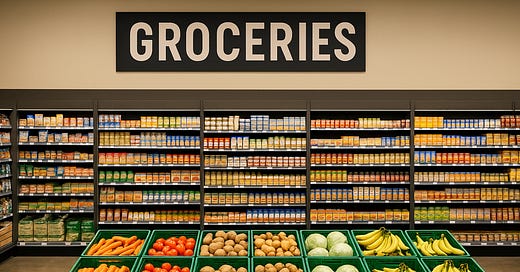An European food retailer run by third generation of family stewards
It is frugal and effective - boring compounding
Since this is a strongly family influenced and controlled company, let’s start with some historical perspective on the family itself:
The Colruyt family represents one of Belgium’s most prominent examples of disciplined, frugal, and long-term capitalist stewardship. Their story is not just about building a supermarket empire—it is about Calvinist-style thrift, private humility, and multi-generational responsibility. Here's a historical perspective structured by key phases:
🏛️ Origins: From Baker to Wholesaler (1925–1950s)
1925: Franz Colruyt, a baker in Lembeek, Belgium, shifts from baking bread to wholesaling colonial goods (coffee, sugar, rice) to local grocers.
He operated under the name "Ets Franz Colruyt", which would become the foundation of today's Colruyt Group.
Franz instilled values of austerity, pragmatism, and ethical business, rooted in his Roman Catholic values, yet culturally akin to Calvinist commercial discipline.
🧱 Building the Discount DNA (1950s–1970s)
Jo Colruyt, Franz's son, takes over in the 1950s and shifts strategy toward discount retail.
Jo was a visionary pragmatist, obsessed with cost control, efficiency, and simplicity.
Inspired by Aldi and other European discounters, Jo initiated:
A no-frills retail model
Extreme price transparency
A refusal to advertise heavily—"What you save on ads, you can pass on in price."
In 1976, Colruyt launched its first self-service store, defining the lean and direct model that continues today.
🧬 Family Continuity & Cultural Rigour (1980s–2000s)
The business remained family-controlled, emphasizing:
Low-profile leadership
Debt-averse growth
Internal promotion and a tight-knit employee culture
Jo passed the torch to his son, Jef Colruyt, in the 1990s.
Jef retained and intensified the group’s focus on technological innovation, green energy, and logistical efficiency, while maintaining the foundational frugality.
Under his leadership, Colruyt diversified into energy (DATS 24), health, and printing services.
🪢 Stewardship & Succession (2000s–Today)
Today, Jef Colruyt remains honorary chairman. The CEO mantle has passed to non-family professionals, yet the family still holds controlling interest via the unlisted holding company Korys.
Korys functions as the family’s long-term investment arm—quiet, ethical, and focused on sustainability and legacy.
The Colruyt family avoids publicity and continues to project a spartan ethos, consistent with their founder’s philosophy: do more with less, serve society, and stay rooted.
🧭 Philosophy: Calvinist Spirit in Catholic Belgium
Though Catholic by confession, the Colruyt family enterprise:
Embodies a Calvinist commercial archetype:
Frugality
Simplicity
Ethical provisioning
Long-termism
Private restraint
Their supermarkets remain some of the most spartan in Europe, with stripped-down design, staff multitasking, and minimal waste.
📚 Cultural Legacy
The family stands as a quiet industrial dynasty, much like the Schmidheinys of Switzerland or the Brenninkmeijers of the Netherlands.
They have resisted the pull of excess, fame, or stock-market hype.
Colruyt Group ($COLR.BR) is one of the most conservatively run public companies in Europe, and its resilience stems directly from the family's intergenerational discipline.
The Colruyt Group Modus Operandi:
The modus operandi of Colruyt Group ($COLR.BR) is unique in Europe: a blend of radical frugality, long-term control, employee trust, and technological discipline. It's not just a retailer—it is a custodian of provision for a frugal, civic-minded society. Here's a detailed breakdown of how it operates:
Keep reading with a 7-day free trial
Subscribe to DB_Silver_Fox’s Substack to keep reading this post and get 7 days of free access to the full post archives.





